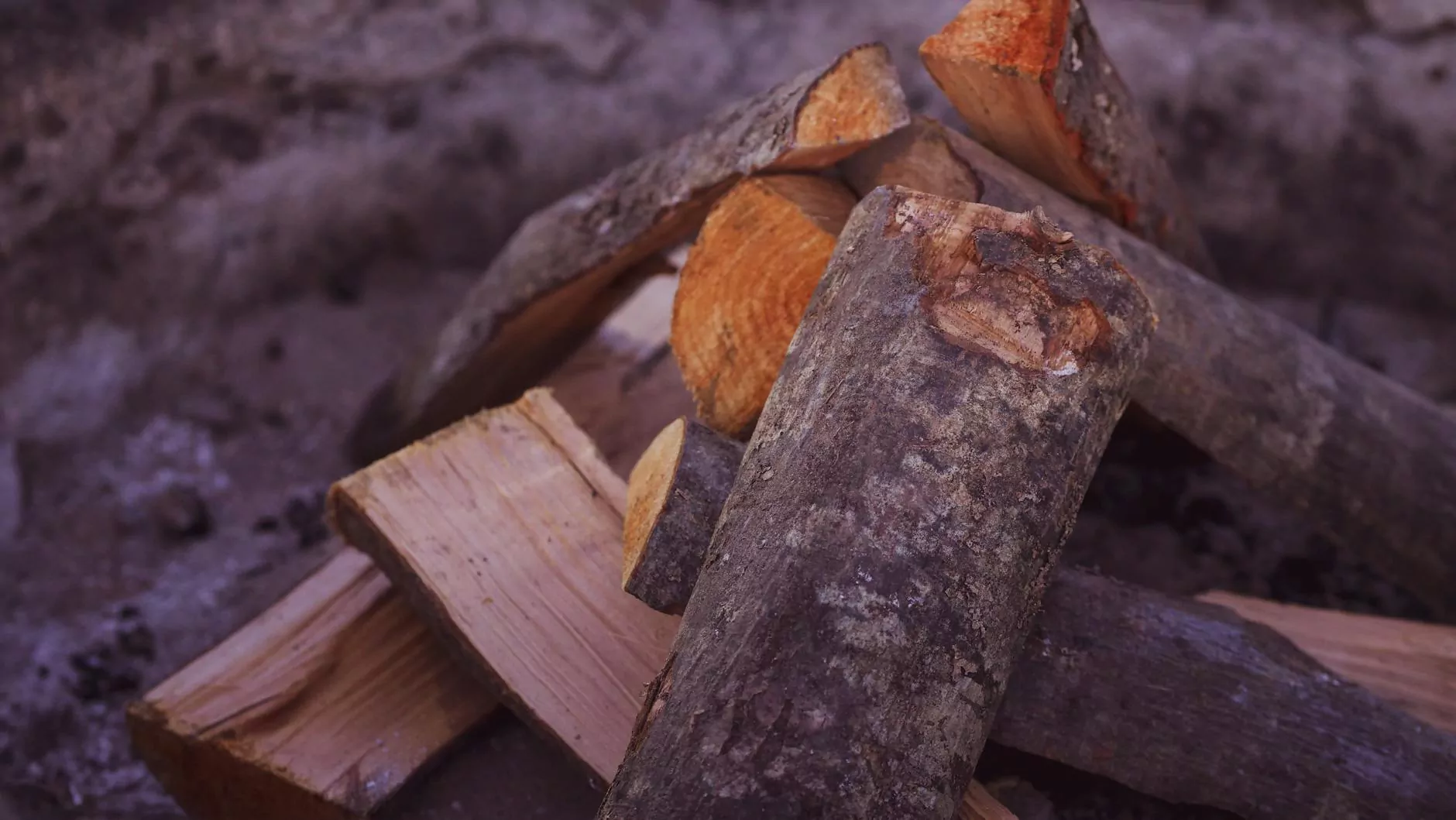Premium Firewood Supplies: The Ultimate Guide to Wooden Logs

In the realm of sustainable heating solutions and cozy ambiance, wooden logs stand out as a timeless and reliable choice. Whether you're an outdoor enthusiast, a homeowner seeking efficient heating, or a business providing firewood products, understanding the significance of quality wooden logs can transform your experience. This comprehensive guide explores every aspect of firewood, emphasizing the importance of high-quality logs, sourcing tips, handling techniques, and how to maximize their burning efficiency for warmth, safety, and environmental sustainability.
Understanding the Value of High-Quality Wooden Logs
Wooden logs are more than just fuel; they are an investment in comfort, sustainability, and cost-efficiency. The quality of your firewood directly influences the burning process, heat production, smoke output, and safety measures. High-grade wooden logs ensure that your fireplace or stove operates smoothly with minimal emissions and maximum heat output.
Why Quality Wooden Logs Matter
- Higher Energy Content: Quality logs provide more heat per unit, leading to efficient energy use.
- Smoother Burning: Well-dried, seasoned logs produce less smoke, creosote, and residue, reducing chimney buildup and potential fire hazards.
- Environmental Benefits: Properly sourced and seasoned logs emit fewer pollutants, supporting eco-friendly practices.
- Safety and Health: Properly prepared wooden logs minimize indoor air pollution and health risks associated with smoke inhalation.
Sourcing and Selecting the Best Wooden Logs
The journey to excellent firewood begins with sourcing. Choosing the right logs involves understanding the types of wood, proper seasoning processes, and sustainable harvesting practices. Here are key considerations:
Types of Wood Suitable for Firewood
Different wood species have varying burning qualities. Hardwoods, such as oak, hickory, beech, and maple, are preferred for their dense composition and long-lasting burns. Softwoods like pine or spruce tend to ignite quickly and burn faster but may produce more creosote, requiring careful handling.
Importance of Seasoning and Its Impact
Seasoning refers to drying the logs to reduce moisture content, ideally below 20%. Well-seasoned wooden logs produce cleaner, hotter burns. Proper seasoning can take from 6 months to a year, depending on the wood type and storage conditions. To assess if logs are seasoned adequately, check for:
- Crackling sounds when burned
- Low moisture content, typically measured with a moisture meter
- Dark coloration and dry appearance on the surface
- Light weight relative to green logs of the same size
Sustainable and Ethical Harvesting
Sourcing wooden logs responsibly is crucial for environmental conservation. Opt for suppliers who practice:
- Reforestation or sustainable logging
- Low-impact harvesting techniques
- Certified wood from legal and sustainable sources
Handling and Storage of Wooden Logs
Once you've acquired quality logs, proper handling and storage are vital to maintain their efficiency and safety. Below are best practices:
Proper Handling Techniques
Use protective gear such as gloves and boots when moving logs. Lift with proper posture to prevent injuries. For larger logs, employ tools like wedges and mauls instead of manual lifting to enhance safety and efficiency.
Storage Tips for Long-Lasting Firewood
Effective storage prevents moisture absorption and mold growth. Store logs in a dry, covered area with good air circulation. Keep them stacked off the ground using pallets or racks to facilitate airflow. Ensure the storage location is free from excessive humidity and direct exposure to rain or snow.
Maximizing Burning Efficiency of Wooden Logs
Burning wooden logs efficiently not only conserves resources but enhances safety and comfort. Here are practical tips that can help:
Optimal Fire Setup
Start with a well-prepared bed of ignited kindling and small splits. Gradually add larger logs while maintaining adequate airflow. Avoid overcrowding the firebox, which can suffocate the fire and produce excessive smoke.
Maintenance and Safety Precautions
Regularly inspect chimneys for creosote buildup, especially if burning softwood or unseasoned logs. Use proper tools to manage fires and never leave unattended. Install safety devices like smoke and carbon monoxide detectors for added security.
Economic and Environmental Benefits of Using Wooden Logs
Switching to high-quality wooden logs offers numerous benefits both economically and environmentally:
- Cost-effectiveness: Long-lasting burns decrease the need for frequent refueling. Cost savings are significant with quality seasoned logs.
- Sustainable Energy: Wood is renewable, especially when harvested responsibly, reducing reliance on fossil fuels.
- Carbon Neutrality: When sourced sustainably, burning wood has a more neutral carbon footprint compared to fossil fuels, supporting climate change mitigation efforts.
- Enhanced Comfort and Ambiance: The crackling sound and aroma of wood fires create a warm, inviting atmosphere.
Choosing a Reliable Supplier for Wooden Logs
Partnering with a reputable supplier like wood-trans.com ensures access to premium firewood products. When selecting a supplier, consider:
- Product quality and seasoning standards
- Range of available wood types and sizes
- Environmental and sustainability credentials
- Delivery options and customer service quality
- Transparency in sourcing practices
By choosing a trusted provider, you guarantee the longevity and efficiency of your firewood supply, enhancing your heating and outdoor experience with wooden logs.
The Future of Firewood: Innovations and Sustainability
As technologies advance, the firewood industry embraces innovations like improved seasoning techniques, eco-friendly harvesting, and efficient transportation methods. The future emphasizes:
- Utilization of renewable resources and waste wood
- Advanced moisture control and seasoning processes
- Eco-conscious packaging and logistics
- Integration of smart tracking for quality assurance
Consumers are increasingly focused on eco-sustainability, which influences industry practices and product offerings. Embracing these trends ensures that wooden logs remain a sustainable and superior choice for heating and ambiance.
Conclusion: Elevate Your Heating Experience with Quality Wooden Logs
Choosing the best wooden logs is essential for an effective, safe, and environmentally responsible heating solution. From sourcing responsibly, properly seasoning, and handling with care, every step influences your overall experience. By partnering with reputable suppliers and adopting best practices, you ensure that your firewood offers maximum heat, safety, and sustainability.
Invest in high-quality firewood to create cozy environments, reduce environmental impact, and enjoy long-lasting value. Whether for residential use, commercial purposes, or outdoor living, wooden logs are your reliable companion in warmth, comfort, and sustainability.









